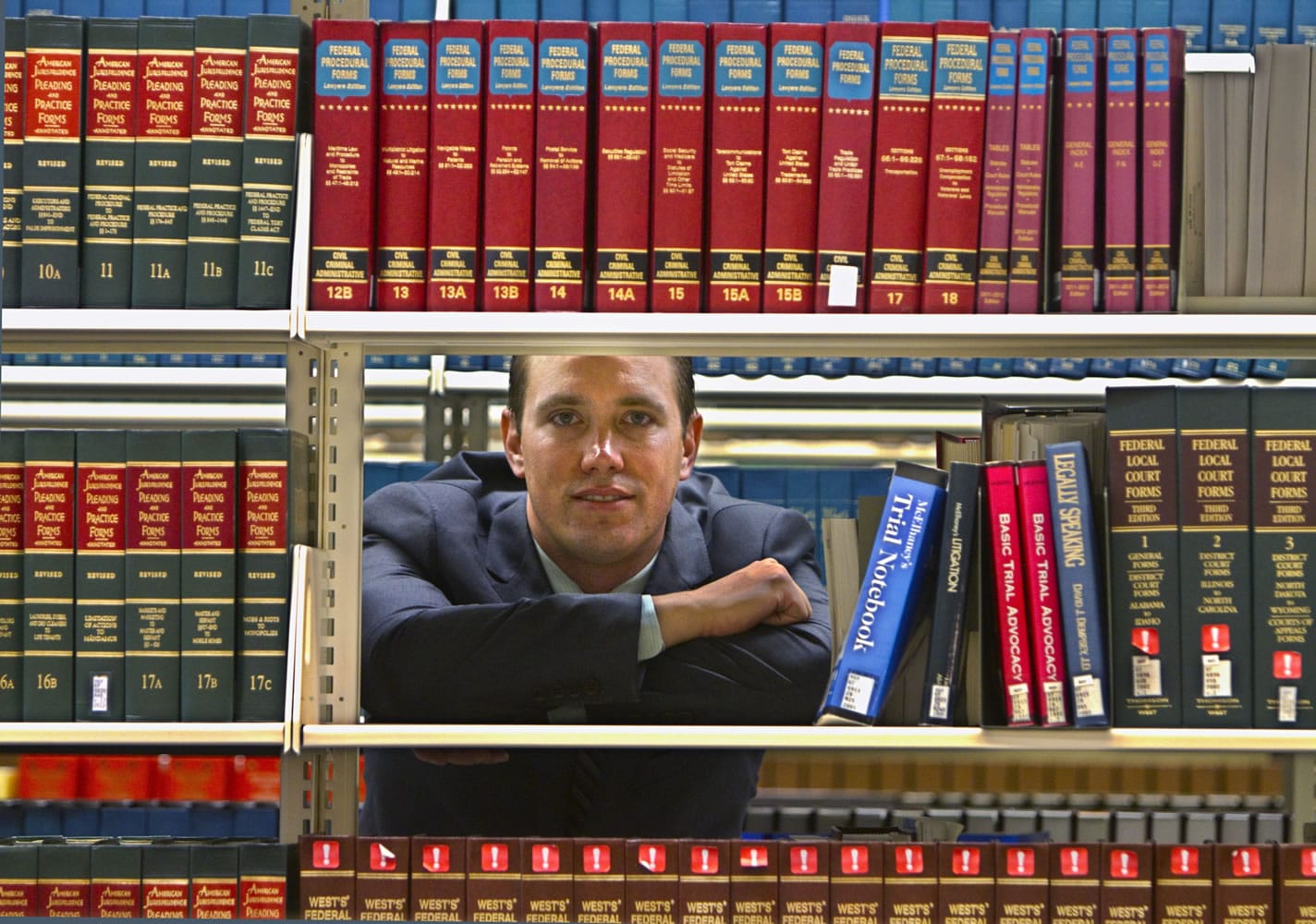SEATTLE — When classes started Monday at the University of Washington, Shon Hopwood could have been just another law-school student — scouting out the location of his first class in Gates Hall, shouldering a heavy backpack of legal texts.
But Hopwood is no ordinary law student.
The 37-year-old father of two served 10 years in federal prison for robbing five banks in the late 1990s. While in prison, he became such an adept jailhouse lawyer that two of his petitions were reviewed by the U.S. Supreme Court.
This summer, his memoir, “Law Man,” written with co-writer Dennis Burke, was published by Crown Publishing.
“There are so many things about him that are amazing and interesting,” said Michele Storms, assistant dean for public service law at the UW.
“That whole prison lawyer thing? That’s no small potatoes,” Storms said. “He obviously had an incredible intellectual capacity, but through a series of bad choices — very bad choices — and a lack of motivation, went down the wrong path.”
Storms is director of the Gates Public Service Law Program, which has awarded Hopwood a full-ride scholarship — one of five awarded each year to incoming law students who commit to at least five years in a public service law practice after graduating.
Hopwood was chosen for the honor because “the thing we’re really looking for with these scholars is a passion for justice,” Storms said. And Hopwood “has experienced it; he’s witnessed it.”
A college dropout, Hopwood was working a menial job in his hometown of David City, Neb., in 1997 when he hit upon the idea of robbing banks for excitement and money. When he was caught a year later, he pleaded guilty to the armed robberies and was sentenced to serve 12 years.
Hopwood believes his sentence was fair.
But in prison, the mild-mannered inmate met dozens of other men whose prison time seemed out of line with the scope of their crime. One, John Fellers, had been sentenced to 12 years in prison for trafficking in methamphetamines — fingered by a group of drug dealers who were trying to reduce their own sentences by implicating others.
Told by police that he’d been indicted by a grand jury for drug trafficking, Fellers — who had by that time quit drugs and had none in his possession — began talking to the officers about his past involvement with drugs, not realizing his words would be taken as a confession.
After studying the case day and night, Hopwood filed a petition to the U.S. Supreme Court, arguing that Fellers should have been read his Miranda rights after he was told of the indictment.
Hopwood’s petition was one of more than 7,000 the court received that year. The likelihood of the Supreme Court taking up any petition — much less one written by a prison inmate — was exceedingly low, Hopwood said; the court only took eight that year. “It’s like 1 percent of 1 percent.”
Ultimately, the Supreme Court ruled 9-0 in Fellers’ favor, and a lower court reduced his sentence by four years.
Hopwood was released from prison two years early, in 2008, after being awarded time off for good behavior. During his time in prison, he said, he helped a dozen other prisoners get sentence reductions of three to 10 years. A second petition of his was also accepted by the Supreme Court.
Hopwood married a woman from his hometown, Ann Marie Metzner, whom he’d courted while in prison. He finished his bachelor’s degree from Bellevue University in Nebraska, and in 2010 began applying to law schools.
Why did the UW take a chance on him?
“It’s a good question,” said UW law school dean Kellye Testy.
One of the school’s main goals is to foster leadership, she said, so the admissions team looks beyond test scores and grade-point averages, choosing candidates who have experienced hardships that might lead them to a greater understanding of those whose lives have been less fortunate.
“All the things we’d really like to see in someone who’d use law to achieve justice — we saw it there with Shon,” she said.



